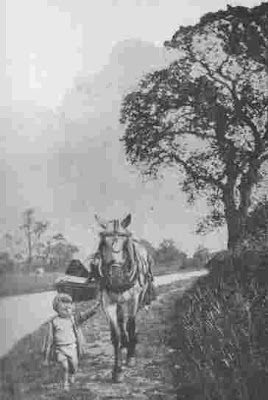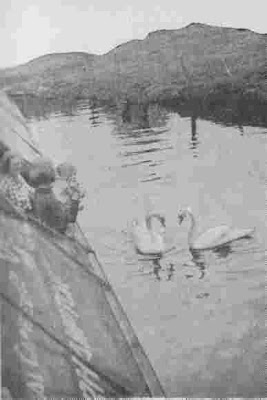I continue to extend my waterways second-hand book collection – mostly with pre-war travelogues and books dealing with canal history. My most recent purchase was another couple of books from ebay, again for only around £5.
Vagabonding through the Midlands was published in 1935. It doesn’t only cover boating it also covers travelling by roads, when road travel was more of an adventure, and it includes some railway journeys; there is a brilliant description of a footplate journey from Wolverhampton to London on an overnight goods express. It is almost the prose equivalent of W H Auden’s Night Mail.
So what of the waterways connection? Well one section, three chapters, covers a remarkable journey from the author’s base near Wolverhampton to Llangollen using a horse-drawn narrowboat hired from Midland & Coast Canal Carriers of Wolverhampton. The hold of Neptune was adapted for the author and his family. This included a false bottom and areas under cloths set out as dining-rooms, sitting-rooms and cabins. There is reference to the use of deck-chairs, a small library and even a portable gramophone. The boat was crewed by the Wildey family and hauled by an ex-hunter called Daisy.

The author's son Charles, aged 3, leading Daisy pulling Neptune
There are evocative descriptions of how the boat was operated and some excellent descriptions of working boats. The author’s discussions with Neptune’s skipper, Sam Wildey, obviously made quite an impression on the author. It gave him an insight into the lives of boat people. Quaestor was, of course impressed with their skills and he writes about how beautifully kept some cabins were. But he obviously understood that the lives of boatpeople were hard. He was certainly not sentimental about there conditions.
“The canals are the only places where there is real child labour in England today and little seems to be known about it by the authorities.”
“Still another generation of illiterate boat people is therefore being created to our discredit, and no-one seems able to do anything about it.”
He even finishes the boating section pointing out how beautiful was the view from the canal at Llangollen but how true was the adage that other people’s jobs are rarely what they seem.

Morning on the Canal
You may recall the difficulties Tom Rolt later had getting Cressy to Llangollen. Well Neptune, although relatively lightly loaded, did run aground on their trip.
So who was Quaestor? He was Wilfred Byford-Jones (1907 – 1977), an author and journalist who wrote extensively for the Wolverhampton Express & Star and lived from some time at Beckbury. Aside from his travelogues and mystery stories, he appears to have written some important historical accounts of Greece during the second world-war, of the Cyprus conflict, and of the Arab-Israel war. To find out what about what a quaestor is, try Wikipedia.
Steve Parkin